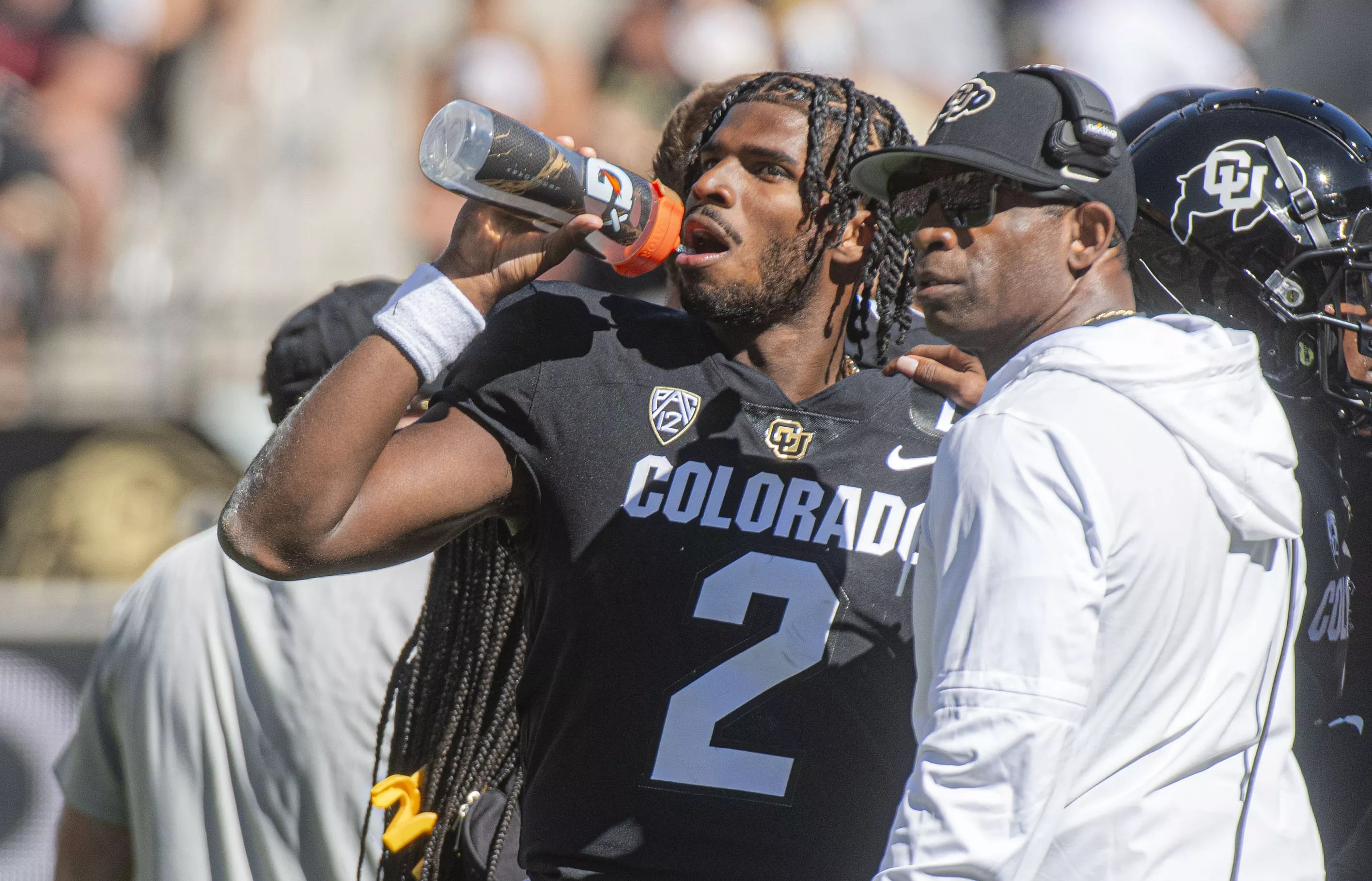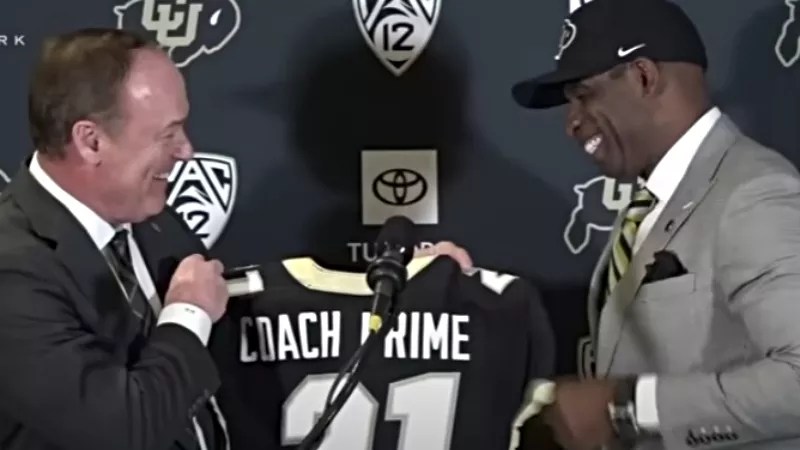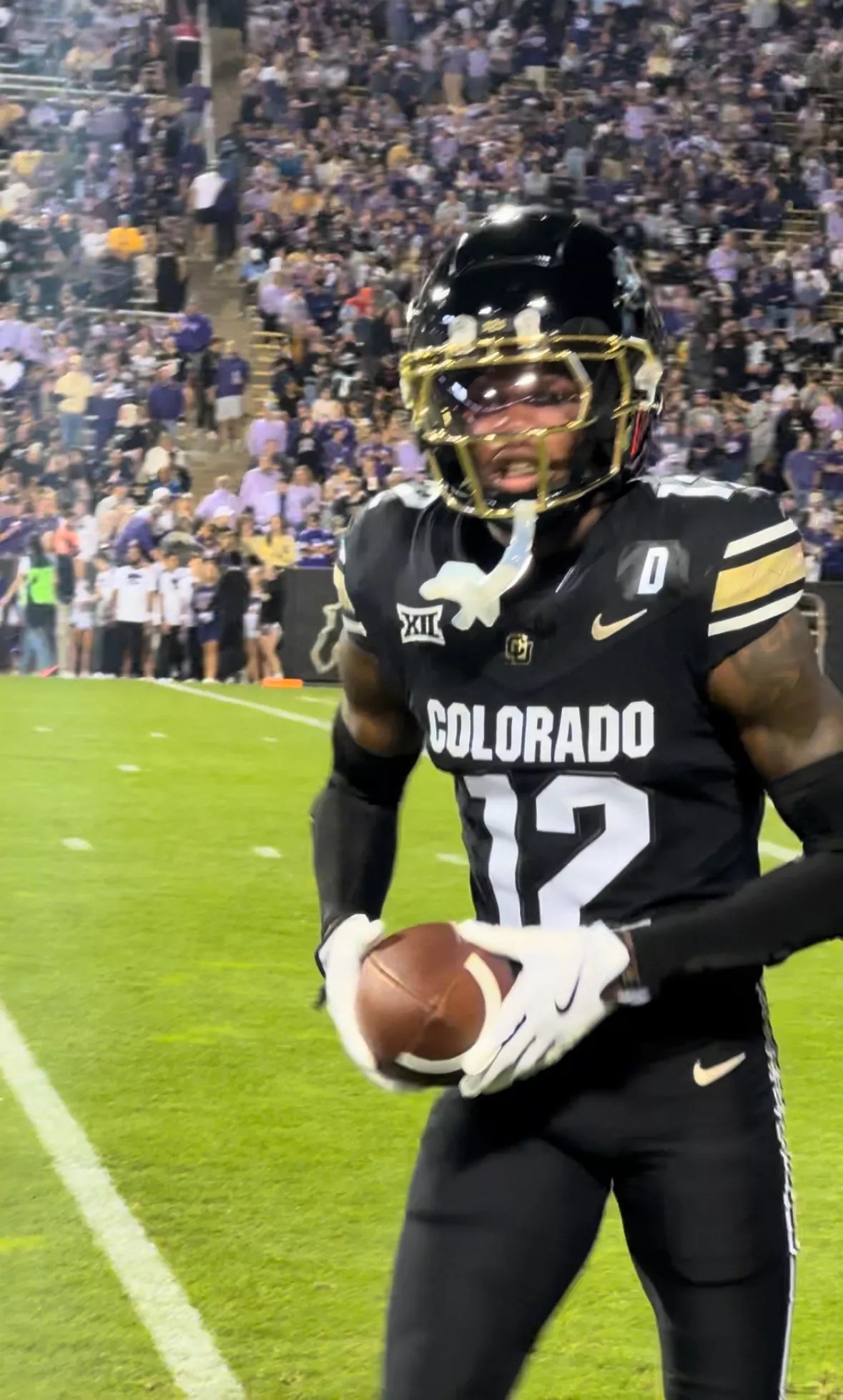
Evan Semon

Audio By Carbonatix
Colorado college sports will be at a competitive disadvantage if universities can’t directly pay student-athletes for their name, image and likeness (NIL) this summer, according to lawmakers, but a bill intended to address the issue isn’t without detractors.
State Representative Lesley Smith and senators James Coleman and Judy Amabile are sponsoring House Bill 25-1041, which will repeal a current legal stipulation in Colorado that schools cannot directly enter into NIL contracts with students.
Both CU and Colorado State University have registered in support of the bill. Rick George, athletic director at CU, said the school expects to begin paying athletes in July should the settlement and Colorado law both make it legal to do so by then.
However, the bill is opposed by free information advocates like the Colorado Freedom of Information Coalition, the Colorado Broadcasters Association and the Colorado Press Association, which are concerned about an exemption in the measure that would keep athlete contract specifics out of the public eye.
Smith and Amabile, who represent the Boulder area, say the bill is needed to keep state schools like the University of Colorado competitive, pointing to a looming settlement in which the NCAA is poised to allow schools to pay students for their NIL directly.
Why Are NIL Changes Needed in Colorado?
Last spring, the NCAA proposed a settlement to end three court cases lodged by current and former student-athletes alleging the NCAA broke antitrust law by preventing students from being able to profit off their NIL. As part of the settlement, any student dating back to 2016 could be eligible for back pay, and current students will be allowed to enter into revenue-sharing agreements with their schools starting in the 2025-2026 school year.
The details are set to be finalized in April, but schools are expecting to dish out around $20.5 million in NIL payments for student-athletes in the first year, with that amount increasing by 4 percent for the next two years before being recalculated.
“We’ll be out of compliance if we don’t pass this law,” Smith, a former CU regent, says. She points to other states like Missouri, Florida, Utah and Ohio that are also working to change their laws before this summer.
Smith wants Colorado to keep with the times to decrease the “Wild West” situation in college athletics – or, at least, by a little bit. When she decided to run for the state House as her six-year tenure as CU regent was set to end in 2024, the former environmental scientist knew this bill would be one of her first legislative priorities.
“We had conference realignment, we had NIL, the transfer rules have completely changed,” Smith continues. “As a regent, I’ve had a front-row seat to see the quickly shifting collegiate athletic landscape. It’s a little bit like the Wild West, to be honest.”
According to George, CU plans to add NIL to the school’s contract with student-athletes, which currently outlines any scholarship money or other benefits students receive in exchange for adhering to team rules and playing for the team. Should the law pass, contracts could also describe what commitments, like social media posts or appearances at alumni and donor events, student-athletes must complete in exchange for NIL money.
Proposal Allows More Endorsement Opportunities
Along with allowing schools to directly pay athletes, the law would also repeal the prohibition on athletes from signing conflicting contracts with their team’s contracts. This measure has already been ignored in effect as CU is a Nike school but athletes who play there have signed deals with other sports apparel brands, including former CU football standout and Heisman winner trophy winner Travis Hunter, who signed a deal with Adidas while he still played for CU.
On the other hand, CU football coach Deion Sanders ended a contract with Under Armour when he was hired by CU, only to reunite with Nike – a move many at the time believed to be connected to the provision that those associated with the school couldn’t have conflicting contracts.
The bill clarifies those rules, stipulating that school contracts can’t block deals for players or coaches with conflicting brands. Amabile says she believes eliminating that restriction, along with the bill’s other elements, would better help Colorado schools in recruiting top athletic talent.
“We want to have a great football team and a great athletic department and really be supporting our athletes as much as possible,” Amabile says. “It is a huge economic driver, and it is a big reason why young people want to go to CU.”
Colorado law also currently allows schools to prevent student-athletes from hiring professional representation, such as agents and managers. The bill would repeal that rule.
If passed, the bill would also remove a requirement that students must disclose NIL deals to their universities. However, the proposed terms of the upcoming NCAA settlement would still require any deal over $600 between an athlete and a third party to be reported to the NCAA.
The bill would also exempt NIL contracts between schools and students from CORA requests.

CU Boulder athletic director Rick George (left) is one of the proponents of the new bill.
Pac-12 Networks via YouTube
Why Does CU Want a CORA Exemption for NIL Contracts?
Smith and CU officials argued in a January 29 legislative committee meeting that NIL contracts should fall under the Family Educational Rights and Privacy Act (FERPA), which restricts access to students’ educational records such as GPA and disability accommodations.
“The reason we’re doing so is to protect student privacy,” Katie Gleeson, associate university council for CU told the committee, adding that FERPA is vague and unclear whether contracts would be protected, which is why state law needs to clarify the situation.
According to Smith, eight other states – Connecticut, Kentucky, Louisiana, Missouri, Nebraska, Ohio, Texas and Utah – have exemptions for NIL contracts in their public records laws. Gleeson said the school will still be required to submit an equity report to the NCAA and an athletics budget report to the state each year that would include NIL contracts as a line item, so there would be some information about NIL dollars divvied out by schools.
Gleeson also argued that public schools would be at a disadvantage compared to private schools if their contracts had to be disclosed but private schools did not. However, opponents pointed out that public money goes to public schools, which is why more of their records are public.
According to Smith, because state colleges in Colorado have enterprise status, meaning they receive less than 10 percent of their funding as a direct appropriation from the state and their revenues are exempt from the Taxpayer’s Bill of Rights, the bill as drafted wouldn’t obscure access to information about where public funds go.
Athletics specifically is funded through an enterprise auxiliary, Smith adds, which generates revenue through ticket, merchandise sales and television rights that would then be used for NIL. But opponents don’t think the lack of public money is enough to justify an exemption from open records law, particularly given the constantly changing nature of NIL right now.
“The laws are changing swiftly. The data is changing swiftly,” Eric Maxfield of the Colorado Freedom of Information Act Coalition testified. “There are more changes to come, and this is not the time to close off data. Data leads to good policy decisions. This is a time to leave that door, or window, open.”

Travis Hunter signed a deal with Adidas while playing at CU, but the school is under contract with NIke.
Catie Cheshire
Additionally, Maxfield said, FERPA was not designed to hide student information from the public but to protect students from erroneous information in their school records becoming public knowledge, giving students the chance to challenge misinformation in their public records.
“It is not in place to protect a student’s correct information and especially student information that’s not about their education,” Maxfield argued. “We believe that that’s an overreach of FERPA to say that that requires closure of these records.”
Maxfield also brought up Title IX, which requires equality between genders in college athletics. He cautioned that a CORA exemption could allow an unequal distribution of funds as no one could access such information without a subpoena so institutions could have a greater ability to hide inequity.
According to Maxfield, his organization hadn’t been consulted on the bill or possible amendments; the Colorado Broadcasters and Press Associations also said they had had limited ability to weigh in on the bill.
“Concealing NIL contracts serves no legitimate interest,” Luke Story of the Colorado Broadcasters Association said. “While proponents may argue that NIL contracts involve private funds, the reality is more complex. These agreements are deeply intertwined with public institutions.”
State representatives in the committee didn’t totally buy CU’s arguments, either.
Representative Jennifer Bacon, who had many questions about the CORA exemption, asked how NIL contracts differ from employment contracts, which can be privately negotiated but then become public once agreed on. Gleeson said as NIL contracts are licensing agreements rather than employment contracts they shouldn’t be looked at the same way.
George added that because of how visible CU athletics is nationally with Sanders’s high-profile name attached, there is already excess scrutiny on athletes in the football program.
“If we put this out there about exactly what they’re making and all of that, it puts them under a lot more scrutiny,” George says. “If they have a bad game, if they have a bad season, ‘why are you paying this student-athlete this much money?'”
Representative Anthony Hartsook said he doesn’t approve of this bill completely exempting contracts but would be open to protecting the personal, protected information of students from being released publicly.
“We’re going overkill on this,” he said.
CU indicated a willingness to compromise on allowing aspects of the contracts to be public as long as names and dollar amounts are redacted, as they believe large dollar amounts could easily be tracked back to high-profile students, but those in opposition said dollar amounts should be included in public record.
“The public has a right to know how these new funds flow across genders, across sports and other breakdowns,” said Tim Regan-Porter of the Colorado Press Association. “As the National Law Review noted, the NCAA settlement requires stricter controls and greater oversight of NIL payments to ensure compliance with legal and regulatory frameworks and the school should not be left to police themselves.”
Smith added two amendments aimed to appease those opposed. One would require contracts to be disclosed with names and financial information redacted, and another would require annual NIL spending reports broken down by gender and sport. On the flip side, one amendment would specifically ensure negotiations or communications about such contracts are also closed to the public.
Are High School Students Permitted to Enter NIL Deals in Colorado?
The bill originally included language extending NIL eligibility “to an individual who is eligible to engage in, or may be eligible in the future to engage in, any intercollegiate sport.”
Though that line seemed to indicate that high school students could participate, bill sponsors weren’t initially sure that was the case. However, Smith has since offered an amendment to clarify just that.
“‘Student athlete’ does not mean an individual who engages in a high school sport,” the amendment reads.
What Are the Next Steps for the Colorado NIL Bill?
Despite many questions about the bill, the Education Committee passed the bill to the full House on a 9-4 vote with Bacon, Hartsook, Lori Garcia Sander and Dusty Johnson dissenting and several members indicating the time crunch imposed by the April settlement date as a reason for their “yes” votes.
“I’m happy to be a ‘yes’ today in order to make sure we at least have something on the books and being able to be in compliance with what we need to do,” said Representative Matthew Martinez.
The bill is scheduled for House floor work today, February 11.